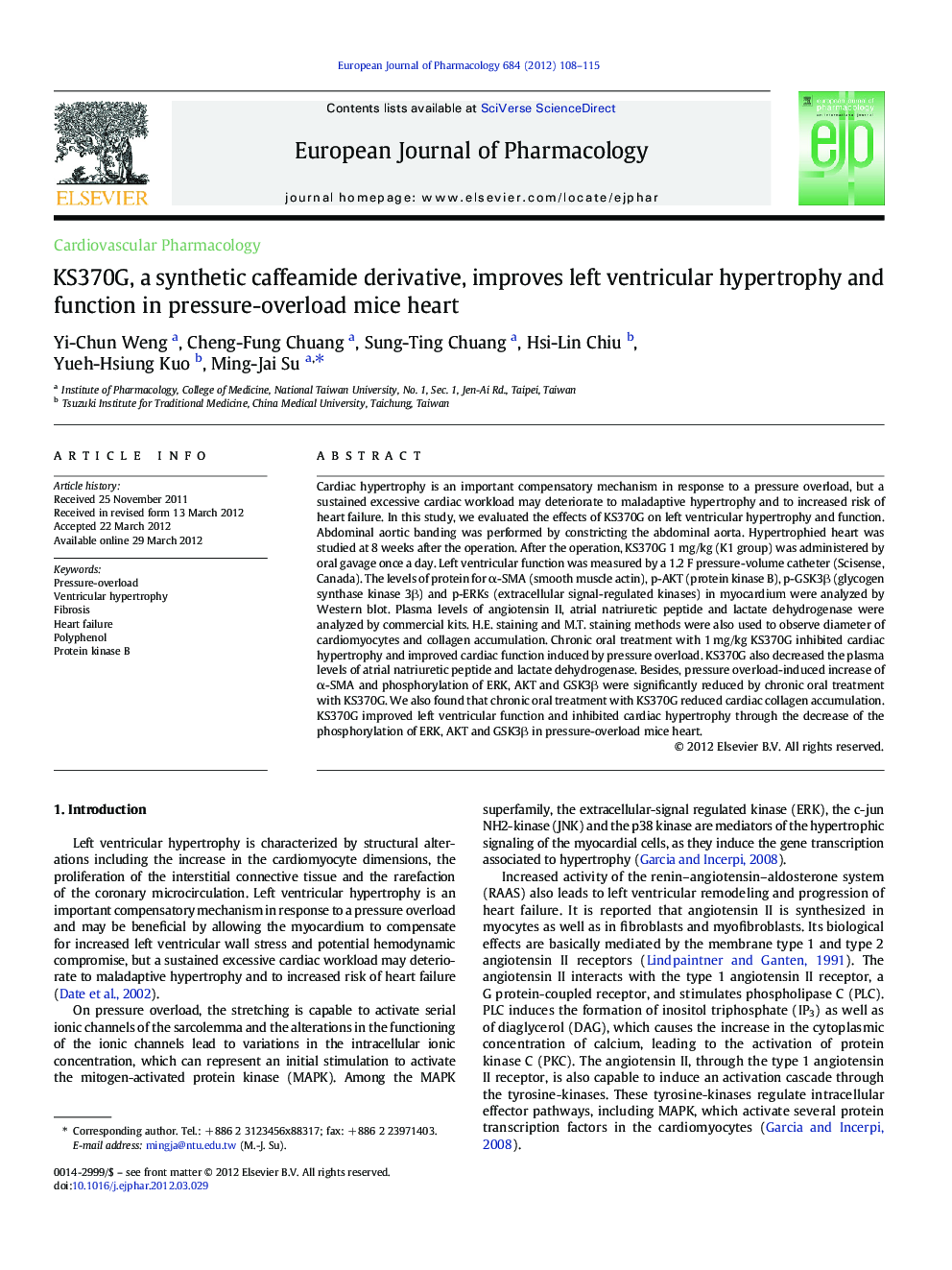| Article ID | Journal | Published Year | Pages | File Type |
|---|---|---|---|---|
| 5829559 | European Journal of Pharmacology | 2012 | 8 Pages |
Abstract
Cardiac hypertrophy is an important compensatory mechanism in response to a pressure overload, but a sustained excessive cardiac workload may deteriorate to maladaptive hypertrophy and to increased risk of heart failure. In this study, we evaluated the effects of KS370G on left ventricular hypertrophy and function. Abdominal aortic banding was performed by constricting the abdominal aorta. Hypertrophied heart was studied at 8 weeks after the operation. After the operation, KS370G 1 mg/kg (K1 group) was administered by oral gavage once a day. Left ventricular function was measured by a 1.2 F pressure-volume catheter (Scisense, Canada). The levels of protein for α-SMA (smooth muscle actin), p-AKT (protein kinase B), p-GSK3β (glycogen synthase kinase 3β) and p-ERKs (extracellular signal-regulated kinases) in myocardium were analyzed by Western blot. Plasma levels of angiotensin II, atrial natriuretic peptide and lactate dehydrogenase were analyzed by commercial kits. H.E. staining and M.T. staining methods were also used to observe diameter of cardiomyocytes and collagen accumulation. Chronic oral treatment with 1 mg/kg KS370G inhibited cardiac hypertrophy and improved cardiac function induced by pressure overload. KS370G also decreased the plasma levels of atrial natriuretic peptide and lactate dehydrogenase. Besides, pressure overload-induced increase of α-SMA and phosphorylation of ERK, AKT and GSK3β were significantly reduced by chronic oral treatment with KS370G. We also found that chronic oral treatment with KS370G reduced cardiac collagen accumulation. KS370G improved left ventricular function and inhibited cardiac hypertrophy through the decrease of the phosphorylation of ERK, AKT and GSK3β in pressure-overload mice heart.
Related Topics
Life Sciences
Neuroscience
Cellular and Molecular Neuroscience
Authors
Yi-Chun Weng, Cheng-Fung Chuang, Sung-Ting Chuang, Hsi-Lin Chiu, Yueh-Hsiung Kuo, Ming-Jai Su,
